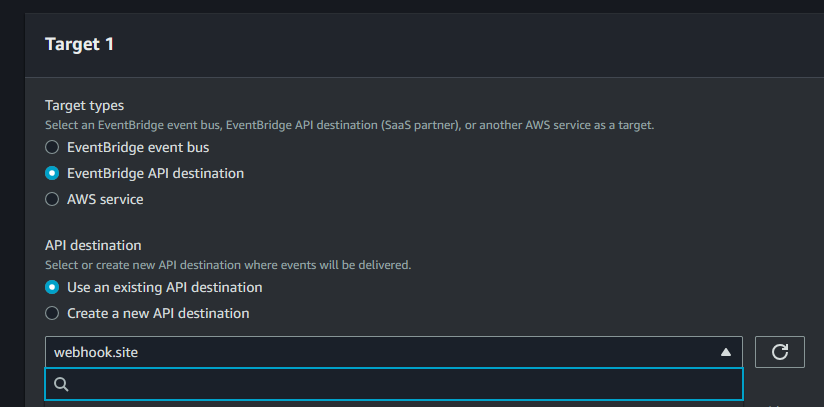Is it possible to create an EventBrisge rule which can be scheduled to run at a certain time of day and call an API as a custom target?
It seems as though a schedule can be setup for targets if they are AWS or Partner services, but not if they are custom configured endpoints.
All I want to do is setup a daily routine to call an endpoint so it can perform a daily cleanup task. If there is a better way, can someone suggest it, please?
EDIT
Under EventBridge I have created a Connection which points at the OAuth endpoint and then an API Destination which points at the API endpoint I want to invoke on a daily basis.
I have then created an event bus and a rule but when I try to set the Schedule option on the rule it shows a warning which states:
Schedule rule is not supported when custom or partner event bus is selected
I believe this means that I cannot invoke my own API endpoint with EventBridge without going through a Lambda. Am I wrong?






Rules > Create Rule > Name: somename > Event bus: default > Schedule > Next > Date and time: Now+1hr > Flexible time window: 15 > NextI end up on theSelect targetpage where I do not have the option to choose my API Destination. So I can't cause my API to be triggered on a schedule. – Vernitavernoleninsk